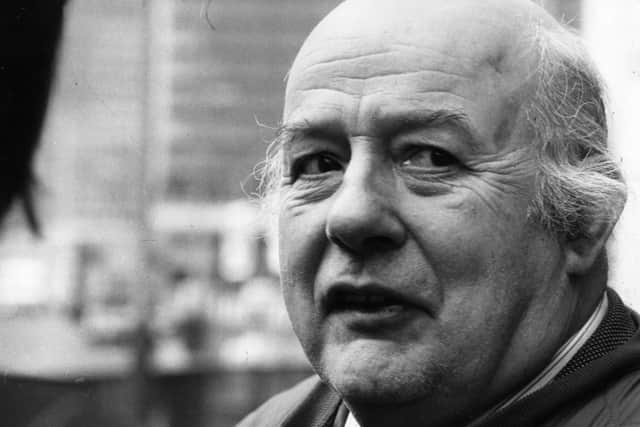Government papers reveal greatest names in 20th century turned down for poet laureate
and live on Freeview channel 276
Some of the greatest English poets of the English century, such as WH Auden and Philip Larkin, were ruled out for the role of poet laureate because they were seen as unsuitable.
The poet laureate is officially appointed by the government to compose poems for special events and occasions
Advertisement
Hide AdAdvertisement
Hide AdGovernment papers, released by the National Archives in Kew, have revealed how many of the greatest names were over passed for the role following the death of John Masefield.
In 1968, following Masefield's death, Number 10 appointment secretary, Sir John Hewitt, was tasked with finding someone new to take on the role.


Some of the most eminent poets of the time were denounced as drunkards, snobs, communists, mentally unstable and the authors of extreme pornography.
WH Auden was ruled out for becoming an American citizen, and Robert Graves was ruled out for a range of reasons. The choice came down to Sir John Betjeman or Cecil Day-Lewis, father of actor Sir Daniel Day-Lewis.
Advertisement
Hide AdAdvertisement
Hide AdBetjeman, perhaps best-known now for his lines "Come friendly bombs and fall on Slough!/It isn't fit for humans now", faced opposition.
According to the papers, Lord Goodman, chairman of the Arts Council and Mr Wilson's personal legal adviser warned that to offer Betjeman the post "would not be to take the matter seriously".
"The songster of tennis lawns and cathedral cloisters does not, it seems to me, make a very suitable incumbent for the poet laureateship of a new and vital world in which we hope we are living. An aroma of lavender and faint musk is really not right for an appointment of this kind at this moment," he wrote dismissively.
Day-Lewis was selected for the role, but he too faced opposition, chiefly from Geoffrey Handley-Taylor, chairman of the Poetry Society, who described him as no more than "a good administrative poet".
Advertisement
Hide AdAdvertisement
Hide AdHe held the role for four years, until his death in 1972, and Auden was front runner for the role.
However, in a letter to Number 10, Jon Stallworthy, another poet and literary critic, wrote: "For him now to turn his coat again would make a mockery of the laureateship."
According to the papers, Ross McWhirter, co-founder of the Guinness Book of Records contacted Sir John and accused Auden of writing a pornographic poem, named The Gobble, which had appeared anonymously in a publication called Suck. The first Europe Sex Paper No 1.
"He then produced a copy of the paper and showed me the poem by 'WH Auden' which ran to about 30 verses of an utterly revolting character. His concern was that, if Mr Auden were appointed to the position, a further publication of this poem would take place and that this would bring disgrace upon the appointment itself and would reflect upon Her Majesty The Queen." Sir John wrote.
Eventually, the role went to Betjemen, who was poet laureate until his death 10 years later.
Comment Guidelines
National World encourages reader discussion on our stories. User feedback, insights and back-and-forth exchanges add a rich layer of context to reporting. Please review our Community Guidelines before commenting.
